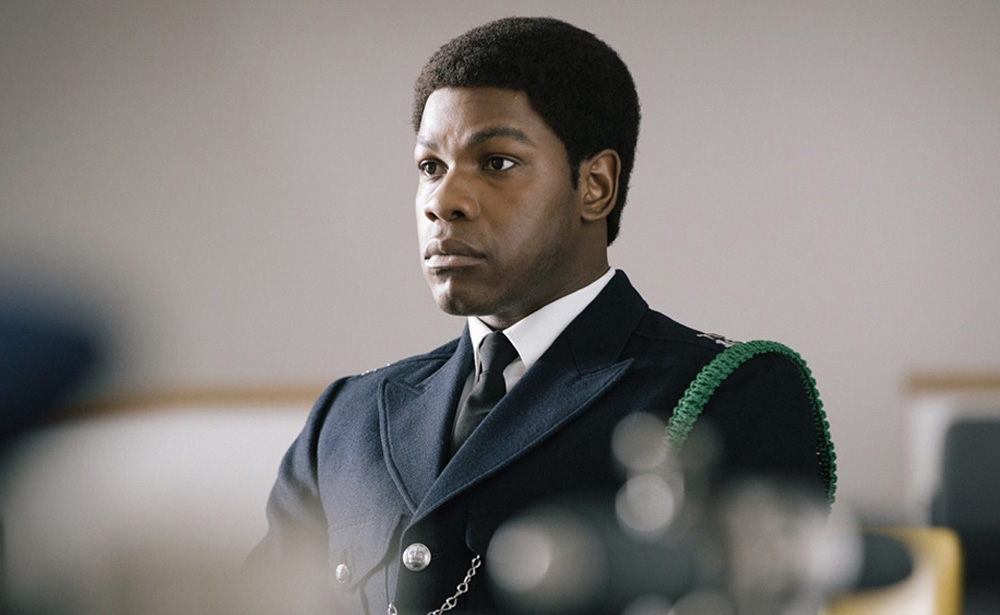Along with “Mangrove” and “Lovers Rock,” it becomes clear that the chance to open up his music playlists in the “Small Axe” series has given Steve McQueen the opportunity to open up his heart. There’s a scene in “Red, White and Blue,” the third entry of the series to be shown at the New York Film Festival, where the aching vocals of Al Green overtake the screen as “How Can You Mend a Broken Heart?” plays over the car radio as Kenneth (Steve Toussaint) gets out to embrace his son Leroy (John Boyega) right before heading inside the police academy for training. It can’t exactly be construed as a proud day for the father when he has never had any trust in law enforcement, once telling Leroy as a boy that “I’m the only authority you need.” Yet in raising his sons right and giving them the chance to pick their own futures, he has to respect Leroy’s desire to become a cop when reform needs to start somewhere.
Even without seeing the two other films in The five-part “Small Axe,” which Amazon and the BBC will be saving for their broadcast premiere later this fall, it can be safely stated that the series is McQueen’s warmest work, even when it remains bracing in meeting the countless cruelties humans are capable of inflicting on one another with an unforgiving eye. You suspect the strong-willed Kenneth and Leroy would find something to argue about, but it shouldn’t have had to have been this, finding the two at loggerheads when ironically Leroy is pushed towards pursuing a badge after Kenneth is brutally beaten over arguing an unfounded parking violation. The film opens with Leroy, as a young boy, being questioned by the police when standing outside for his father to pick him up after school a little later than others, but while the situation only deepens Kenneth’s anger, it instills a sense of responsibility in his son that propels him to give up potentially more lucrative work in scientific research, which he has a degree for, in order to qualify to be a beat cop, theoretically different than the ones that were so eager to question him as a child.
Beyond his break in “Attack the Block,” Boyega hasn’t had a role quite as juicy to properly showcase his arresting fortitude and vulnerability, but he’s a force to be reckoned with as Leroy, caught between the encouragement of his friends and most of his family, but nearly instantly rejected by the primarily white constables he finds himself alongside, with the department’s embrace of him as a minority hire that they can advertise around only making them more resentful. He finds some support in a Pakistani colleague who doesn’t have it any easier, but the perspective of seeing just how rotten things are within the force where he’ll get crickets when he calls for back up and expected to pretend not to hear the racial epithets eventually begins to turn from fueling his determination to threatening to become corrosive.
“Red, White and Blue” features what may just be one of the best sequences McQueen has committed to film, watching Leroy chase a perp through a paper factory where the overwhelming sensation of the machinery around him seems like a far greater threat than the criminal he’s running after, and while “Red White and Blue” impresses in exposing the entrenched racism that relentlessly aims to break a community apart, the director rises to a greater challenge in this time when despair comes so easily of showing all the small ways that people lift each other up and dare one another to think beyond their own circumstances. The result is nothing less than transcendent.
“Red, White and Blue” will premiere later this year on Amazon Prime.




